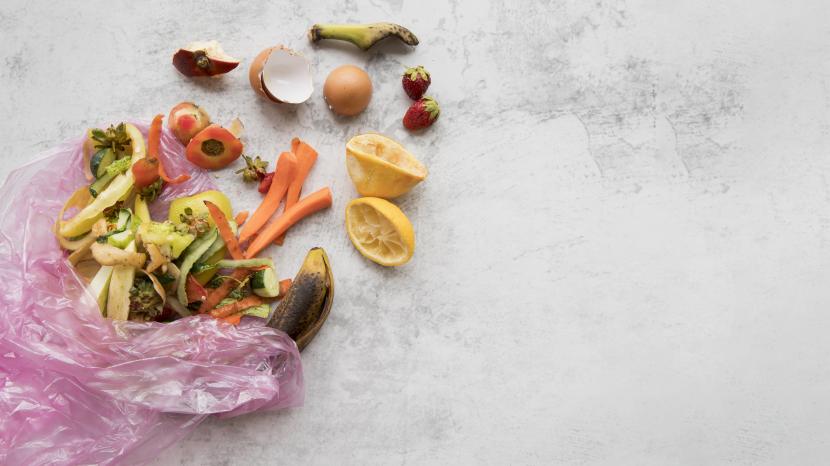REPUBLIKA.CO.ID, JAKARTA -- Indonesia ranks fourth for the highest level of food waste in the world, at 20.94 million metric tons, according to data from the United Nations Environment Programme (UNEP) or United Nations Environment Programme for 2020. The problem is becoming even more precarious as food waste is projected to increase by up to 31 percent by 2030.
Globally, as much as 1.3 billion tonnes of food is wasted every year. Equivalent to the angle of food produced for consumption by the world community (FAO). Meanwhile, food waste generation in Indonesia reaches 23-48 million per year, equivalent to 115-184 kilograms/capita/year, according to the 2021 Bappenas study. This then has an impact on greenhouse gas emissions, amounting to 1702.9 metric tons of carbon dioxide (MtCO2) or the equivalent of 7.29 percent of greenhouse gas emissions in Indonesia.
“This is such a big problem. "Because apart from emitting greenhouse gas emissions, food waste also has an impact on the economy," said Deputy for Food Insecurity and Nutrition at the National Food Agency, Nyoto Suwignyo, in a press conference at DBS Tower on Wednesday (18/10/2023).
Nyoto said that food loss/waste (FLW) causes Indonesia to lose IDR 213 – 551 trillion per year, which is equivalent to 4-5 percent of Indonesia's GDP. The biggest economic loss occurs at the food waste (FW) stage, amounting to IDR 107-346 trillion annually. When compared with food loss, the incidence of FW over 20 years tends to increase, from 39 percent in 2000 to 55 percent in 2019, with an average of 44 percent.
The food waste produced each year, stressed Nyoto, could feed around 61-125 million people, equivalent to 29-47 percent of Indonesia's population. "So food waste in Indonesia is indeed very large, it can even cover most of the problem of malnutrition or nutritional deficits in Indonesia," stressed Nyoto.
Responding to this problem, Nyoto then encouraged collaboration with various parties to minimize food waste. The National Food Agency also continues to carry out outreach and education to the public so that they do not leave food behind.
"If we are given boxed snacks, we are given 3 cakes, sometimes we only eat 2, and the rest goes to the leftovers. "If you usually design a wedding invitation, it contributes to the amount of global food waste of 1.3 billion tonnes," stressed Nyoto.
In order to address the problem of food waste, the government through the National Food Agency continues to strengthen the 'Food Saving Movement' program. With the goal of saving food that could potentially become food waste, the Food Rescue Movement consists of three main activities, namely the provision, collection, sorting and distribution of food through food donation, providing a digitally accessible food rescue platform, and conducting socialization, education and advocacy to the community through the campaigns 'Stop Wasting Food' and 'Wise Shop'.
“Through the Food Rescue Movement program, it aims to change society's paradigm in managing food waste and encourage more sustainable practices,” said Nyoto.
The complex problem of food waste in Indonesia cannot be solved by the government alone, but there needs to be collaboration from various parties including the private sector. DBS Indonesia, being one of the private parties, is committed to helping to tackle food waste through the campaign 'Live more, Waste Water, & Food Less'.
Head of Group Strategic Marketing & Communications of PT Bank DBS Indonesia, Mona Monika, said that this campaign is DBS's real commitment in addressing the issue of waste and water conservation. “We also believe that all of us, government, private, and community have a role to play in tackling food waste to create a more sustainable future,” Mona said.


